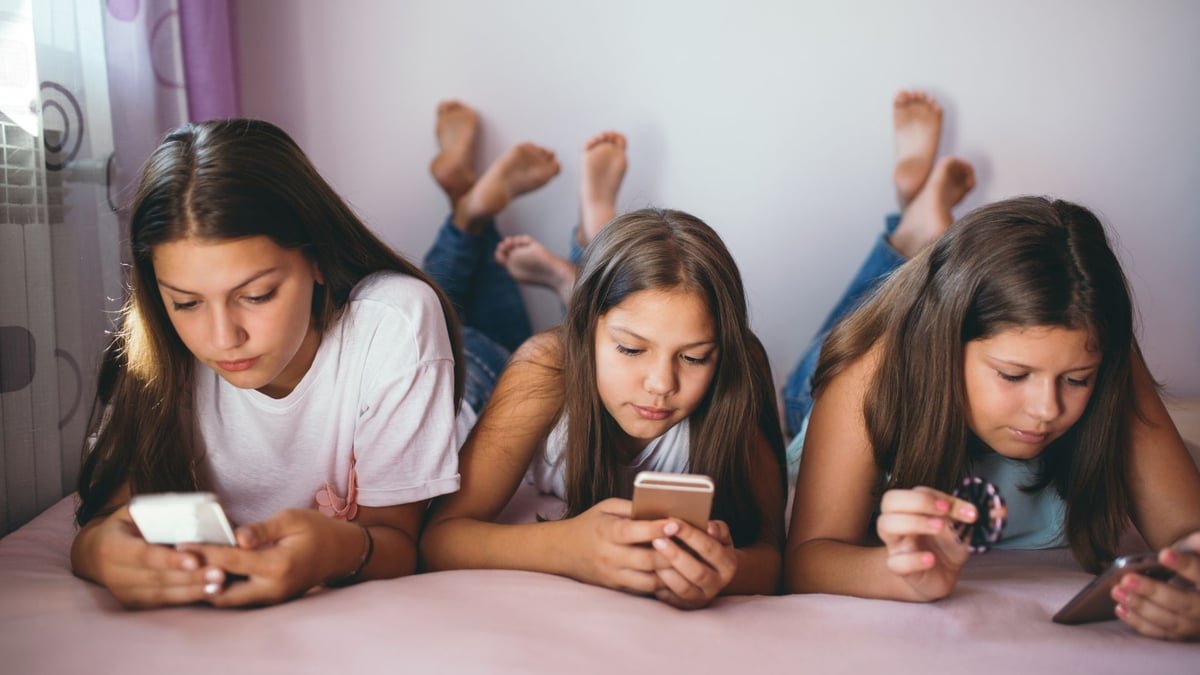Australia has made headlines globally after it became the first country to ban social media for children under the age 16. The new law, passed earlier this week in Parliament, aims to tackle growing concerns over the mental health impacts of social media on young people. Rising cases of cyberbullying, addiction, and exposure to harmful content have prompted lawmakers to act decisively.
Australian Prime Minister Anthony Albanese hailed the legislation as a groundbreaking effort to safeguard children in the digital era. He stated, “This law is a significant measure to protect children’s mental and emotional health in the digital age.”
Australia Bans Social Media for Kids Under 16!
Bold move to protect mental health, but critics question enforcement. Penalties up to AUD 50M! #SocialMediaBan #MentalHealthMatters pic.twitter.com/0ARMvq8oub
— GeoPulseAsia (@GeoPulseAsia) November 29, 2024
Stricter Age Verification requirements
The law requires social media platforms, including Facebook, Instagram, TikTok, and Snapchat, to enforce strict age verification measures. Starting in early 2025, platforms will be obligated to block users under 16 from creating or accessing accounts. Social media companies will have a one-year grace period to implement advanced technologies, such as facial recognition and digital ID systems, to meet these requirements.
Platforms that fail to comply with the law will face heavy penalties. Companies could be fined up to $50 million (AUD) for repeated violations. The hefty fines aim to ensure that platforms take these regulations seriously and prioritise the safety of young users.
Mental health concerns drive the law
The decision to ban social media for children is based on extensive research highlighting its negative effects on young people. Australian health experts have long warned about the dangers of excessive social media use, linking it to depression, anxiety, and sleep disorders.
A 2023 report from the Australian Psychological Society found that nearly 40% of teenagers felt anxious or depressed because of their online interactions. Cyberbullying and the pressure to compare themselves to others online were identified as key factors affecting mental health.
the most accurate news I have seen in recent years.
“Australian Parliament bans social media for under-16s with world-first law
MELBOURNE, Australia (AP) — A social media ban for children under 16 passed the Australian Parliament on Friday in a world-first law.
The law will…
— 006 ️️ (@o_besiktaslii) November 30, 2024
Health experts believe the law is a step in the right direction to curb these alarming trends. By reducing children’s exposure to social media, policymakers hope to create a healthier environment for young people to grow and thrive.
Challenges ahead for social media companies
Social media companies are now under pressure to comply with the law. Developing advanced age verification systems poses both technological and ethical challenges. While technologies like facial recognition and digital ID systems are being explored, critics have raised concerns about privacy and data security.
Additionally, implementing these systems globally on platforms with millions of users will require significant investment and time. Despite the challenges, the penalties for non-compliance leave companies with little choice but to adapt.
Australia’s ban on kids under 16 using social media ignites global discussion. Instead of bans, we should promote digital literacy and healthy habits. Protecting youth needs collaboration! #DigitalSafety #YouthProtection #SocialMedia,#JyotiMalhotra pic.twitter.com/FDn5ar6bha
— DR KAMLESH KALI (@KaliKamlesh) November 29, 2024
Criticism faced by the new law
While many have praised the law as a bold step forward, it has also faced criticism. Some argue that it hinders with children’s rights to free expression and access to information. Digital rights advocates warn that it could create a black market for social media accounts, allowing children to bypass age restrictions using falsified information.
Australia bans social media for people under 16.
This is the first law in the world made by adults to protect children’s lives.
If the number of legitimate children who feel guilty increases, bullying will not decrease. In fact, it may even increase.
Don’t take away freedom
— アンパンマン (@cocoron2336) November 29, 2024
Critics also worry about the potential social impact of the ban. Many young people view social media as essential for staying connected, learning, and expressing themselves. Cutting them off could leave some feeling isolated or disconnected from their peers.
Will other countries follow?
Australia’s decision has caught the attention globally. Experts are observing to see if other countries will take inspiration from this step and implement the same. With social media’s worldwide reach and growing concerns over its impact on youth, this law could set a example for other nations to follow.




